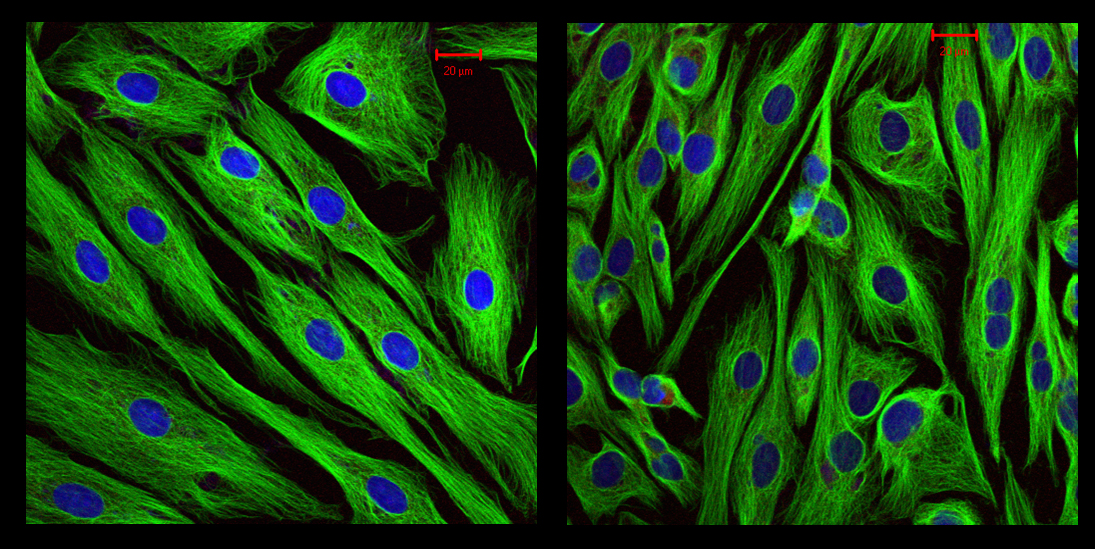Funds to be used for minimizing the toxicity of chemotherapy
A startup company at the University of North Carolina at Chapel Hill has received $12.5 million in venture capital funding to help ease the toxic side effects of chemotherapy and radiation in cancer patients.
G1 Therapeutics, a company based on discoveries made at the UNC Lineberger Comprehensive Cancer Center, will use the funds to launch human drug trials aimed at decreasing the damage done to bone marrow by common cancer chemotherapies and radiation. Funds are being invested from MedImmune Venture Partners and Hatteras Venture Partners.

“At Carolina, it’s not enough to make important scientific discoveries. We constantly work to translate them into products that improve people’s lives,” said Vice Chancellor for Research Barbara Entwisle. “G1 Therapeutics got its start at UNC Lineberger here in Chapel Hill, and this critical funding will bring us closer to bone marrow protection in chemotherapy patients and more effective treatment of radiation poisoning.”
Chemotherapy works by killing cells in the body that are dividing. Because cancer cells are constantly dividing, they are preferentially killed during the therapy. But cancer cells are not the only cells in the body that divide–for example, cells in the bone marrow divide to create red and white blood cells as well as platelets. Chemotherapy can’t tell the difference between dividing cancer and dividing bone marrow cells and it kills them both, leading to side effects.
With this investment, G1 plans to initiate the clinical development of novel drugs that cause certain groups of bone marrow cells to temporarily stop dividing—camouflaging them from chemotherapy. In previous studies using mice, this process, which has been termed pharmacological quiescence, protected all the normal cells of blood, including platelets, red cells and white cells. The hope is that pharmacological quiescence will have the same benefit for the bone marrow of humans being treated with chemotherapy for cancer.
“Protecting a patient’s bone marrow from the DNA damaging effects of chemotherapy over the course of their treatment would be really important. This could translate into greater dose intensity, fewer transfusions and an overall improved quality of life for patients with certain types of cancer,” said Ned Sharpless, MD, Wellcome Distinguished Professor of Cancer Research, professor of medicine and genetics, and UNC Lineberger’s deputy director.
The drug could also have benefits to non-cancer patients. “We believe these drugs could also benefit individuals who are accidentally or intentionally exposed to lethal doses of radiation,” said Sharpless.
Dr. Sharpless is co-founder of G1 Therapeutics along with Kwok-Kin Wong, MD, PhD, scientific director at the Belfer Institute for Applied Cancer Science at Harvard Medical School’s Dana-Farber Cancer Institute. The company was founded in 2008 with help from Carolina Kickstart, a UNC program that works to turn university research into new companies.
Preliminary research on which G1 Therapeutics was founded was supported by the University Cancer Research Fund. Further development of G1 was supported by National Institutes of Health commercialization grants.
The University of North Carolina has filed patents on work from the Sharpless lab that have been licensed to G1 Therapeutics. UNC and Dr. Sharpless hold equity shares of G1 Therapeutics.
About G1 Therapeutics, Inc.
G1 Therapeutics, Inc. is a privately held pharmaceutical company based in Chapel Hill, NC, that focuses on the discovery and development of novel small molecules for use in cancer therapy and biodefense applications. These molecules are being developed for targeting specific proteins associated with cell proliferation and growth. Such therapies may be useful to protect the bone marrow and other organs, including the kidney and lung, from toxic insult. In October 2013, the company raised $12.5 million in a Series A financing led by MedImmune Venture Partners and Hatteras Venture Partners that will enable it to advance its lead clinical candidate into clinical trials for the potential treatment of chemotherapy induced myelosuppression. Visit www.g1therapeutics.com for more information.
About UNC Lineberger
One of only 41 NCI-designated comprehensive cancer centers, the University of North Carolina Lineberger Comprehensive Cancer Center brings together some of the most exceptional physicians and scientists in the country to investigate and improve the prevention, early detection and treatment of cancer. With research that spans the spectrum from the laboratory to the bedside to the community, UNC Lineberger faculty work to understand the causes of cancer at the genetic and environmental levels, to conduct groundbreaking laboratory research, and to translate findings into pioneering and innovative clinical trials. For more information, please visit www.unclineberger.org.
